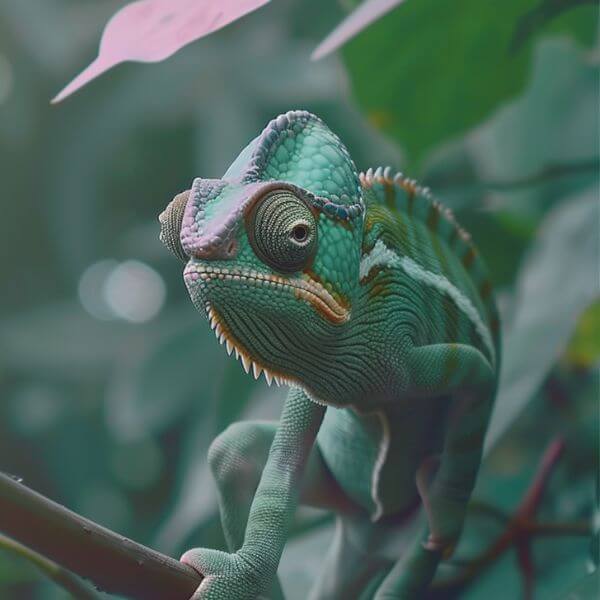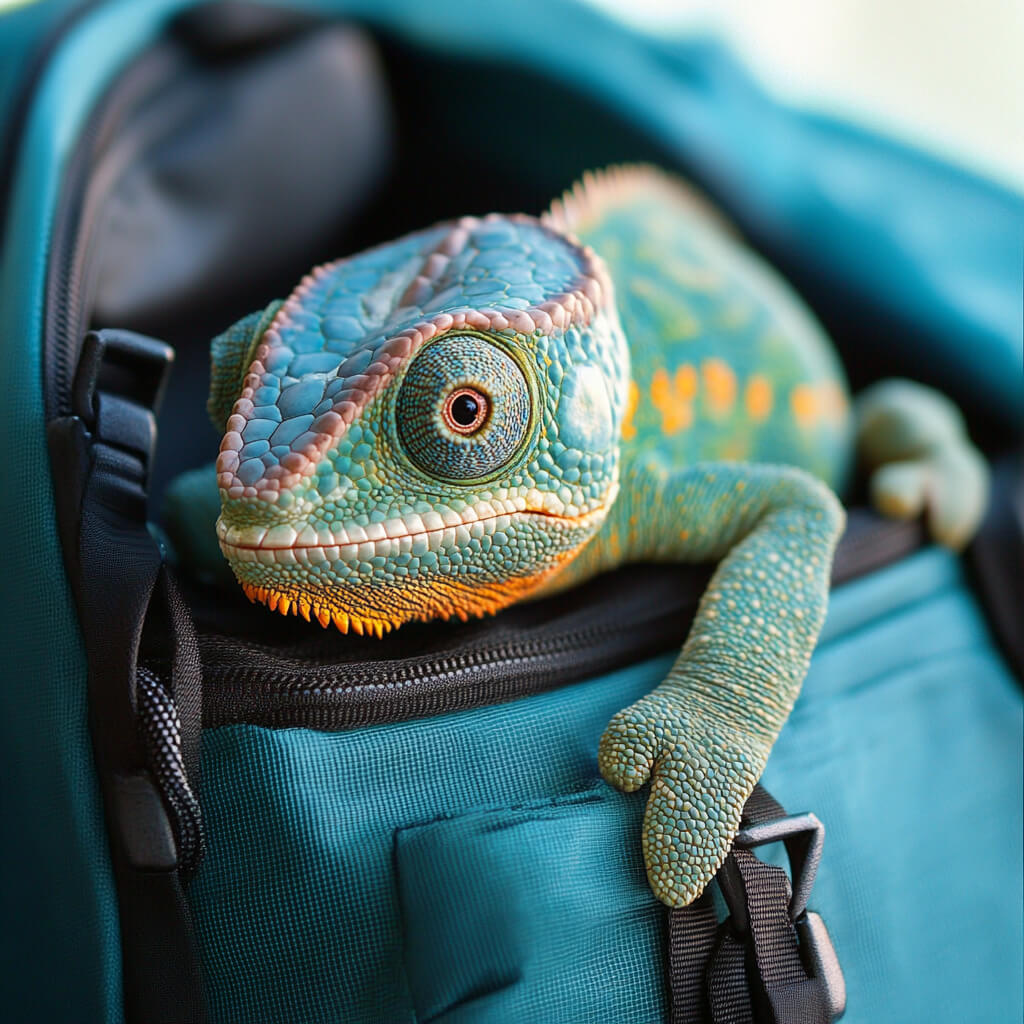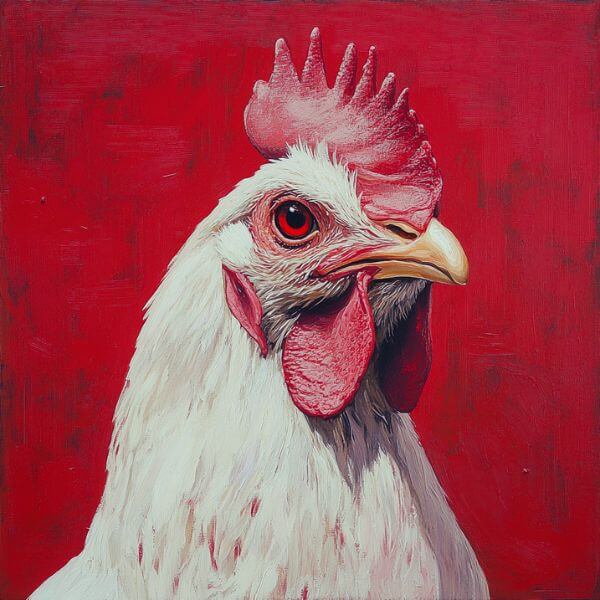Sometimes, yes, chameleons eat their own babies. Shocking, right?
It’s not a common occurrence, but it does happen in both wild and captive chameleons. Here’s a quick breakdown:
| Species | Likelihood of eating babies |
| Veiled chameleons | Higher chance |
| Panther chameleons | Less common |
| Jackson’s chameleons | Rare |
It’s important to note that not all chameleons are baby-eating monsters. Most of the time, they’re just trying to survive like any other animal.
Why do some chameleons eat their babies?
Now, you’re probably wondering, “What’s the deal? Why would they do such a thing?” Well, there are a few reasons:
- Stress: Just like us, chameleons get stressed out. In captivity, things like small enclosures or too much handling can push them over the edge.
- Hunger: When food is scarce, some chameleons might see their babies as a quick snack. It’s not pretty, but it’s survival.
- Instinct: In the wild, eating weak or sickly offspring might help the species in the long run. It’s nature’s way of quality control.
- Accidental nom-noms: Sometimes, a chameleon might mistake its baby for a tasty insect. Oops!
Chameleon reproduction and parental behavior
Let’s talk about the birds and the bees… er, chameleons and the trees? Here’s how these scaly parents-to-be do their thing:
- Mating dance: Male chameleons show off their best colors to impress the ladies.
- Egg-laying: Females dig a hole and lay anywhere from 10 to 100 eggs.
- Incubation: Eggs take about 4-12 months to hatch, depending on the species.
- Parental care: Most chameleons are like, “See ya, wouldn’t wanna be ya!” They leave the babies to fend for themselves.
Here’s a fun fact: Some chameleon species give birth to live young instead of laying eggs. Talk about a plot twist!
Baby chameleon survival
Being a baby chameleon is tough. Here’s what these little guys are up against:
Challenges faced by baby chameleons
- Predators (including adult chameleons)
- Finding food
- Avoiding dehydration
- Regulating body temperature
It’s like a real-life video game, but with no extra lives. Only the strongest survive, which is why chameleons lay so many eggs in the first place.
Preventing cannibalism in captive chameleons
If you’re keeping chameleons as pets, here are some tips to prevent your scaly friends from turning into baby-eating machines:
- Space it out: Give them a big enough enclosure. No one likes a cramped living space.
- Chill out: Keep the environment calm and stress-free. No chameleon raves allowed!
- Separate and conquer: Keep mom away from the babies once they hatch.
- Feed the beast: Make sure your adult chameleons are well-fed and happy.
Species differences in cannibalistic behavior
Not all chameleons are created equal when it comes to baby-eating tendencies. Let’s compare some popular species:
| Species | Cannibalistic tendency | Notes |
| Veiled chameleons | Higher | More likely to eat babies in captivity |
| Panther chameleons | Moderate | Can be prevented with proper care |
| Jackson’s chameleons | Low | Generally good parents |
Remember, these are just general trends. Individual chameleons might surprise you with their parenting skills (or lack thereof).
Chameleon diet and feeding habits
When they’re not munching on their offspring, what do chameleons usually eat? Let’s break it down:
- Insects: Crickets, flies, and roaches are like chameleon pizza.
- Small vertebrates: Some larger species might snack on small lizards or birds.
- Plants: A bit of greenery for fiber, but mostly by accident.
Chameleons are like tiny, scaly ninjas when it comes to hunting.
They use their long, sticky tongues to snag prey from a distance.
It’s like having a built-in fishing rod!
FAQs
How often do chameleons eat their babies?
It’s not super common, but it happens. Think of it as a rare and unfortunate event.
Can baby chameleons survive on their own?
Yep! They’re born ready to tackle the world, even if it’s a bit scary.
What should I do if I’m breeding chameleons?
Separate the eggs from the parents and provide a safe space for the babies to hatch and grow.
Are there any chameleon species that never eat their young?
Never say never, but some species like Jackson’s chameleons are less likely to chow down on their kids.
How can I tell if a chameleon is stressed?
Look for dark colors, hiding behavior, or loss of appetite. It’s like they’re wearing their mood on their scales!
Conclusion
So, there you have it! Chameleons eating their babies isn’t a regular thing, but it does happen.
It’s just one of those wild facts that make nature so interesting.
Remember, if you’re thinking about getting a chameleon as a pet, do your homework and make sure you can provide the best care possible.
Who knows, you might end up with a chameleon that’s more of a doting parent than a baby-eating monster!







Leave a Reply